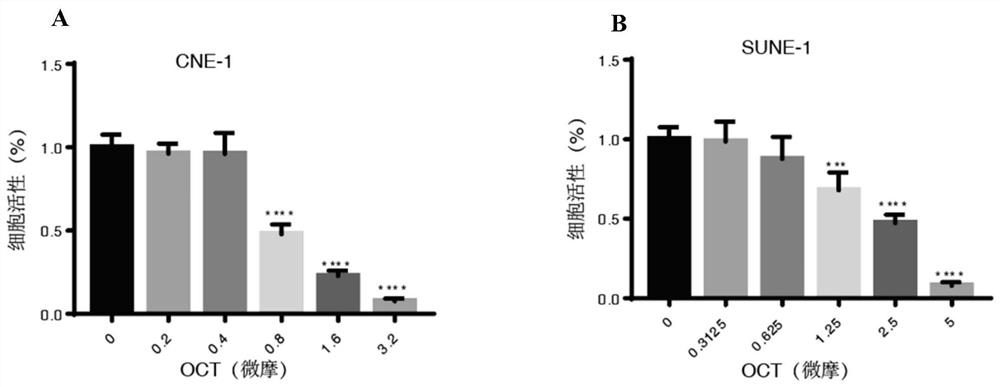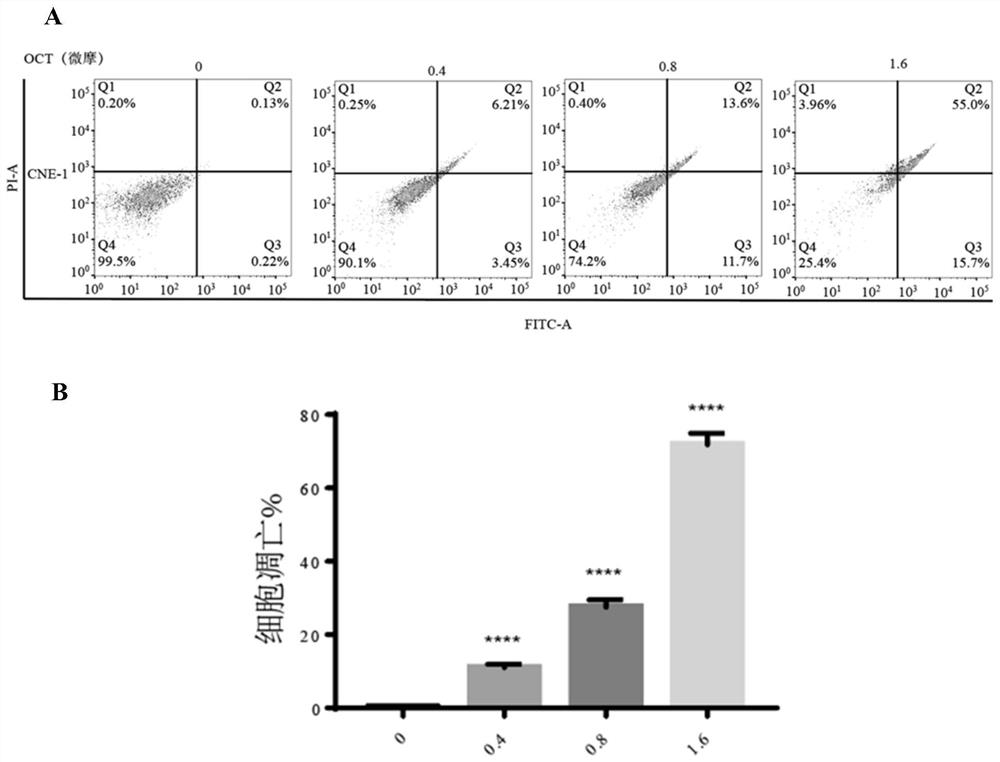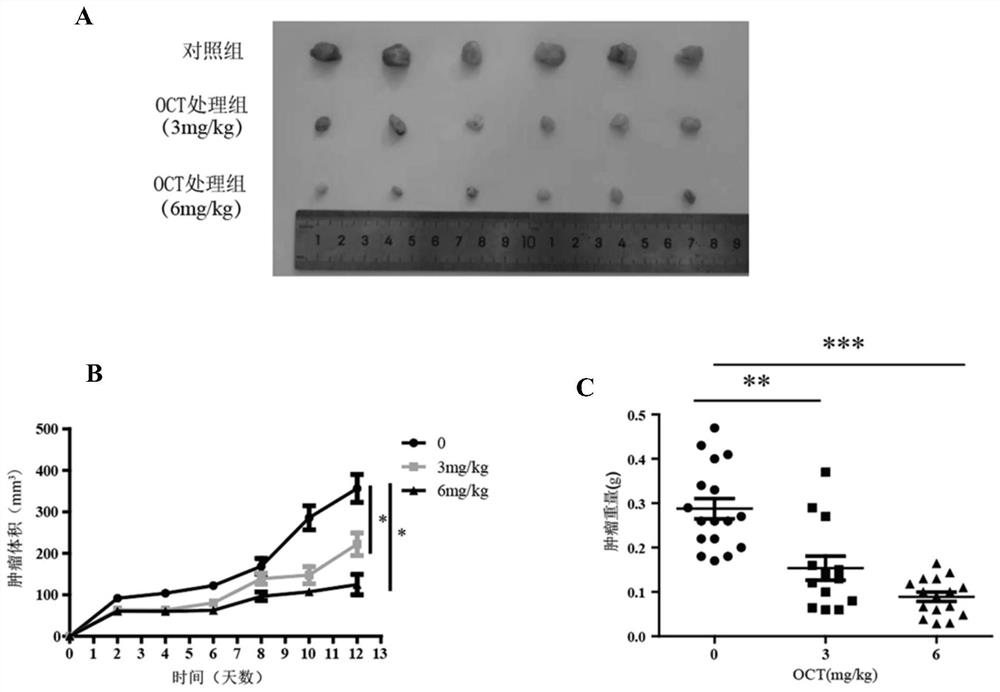Application of octenidine dihydrochloride to preparation of antitumor drug
A technology of octenidine dihydrochloride and antitumor drug, which is applied in the application field of octenidine dihydrochloride in the preparation of antitumor drugs, can solve the problems of stimulating phagocytosis and growth factors, and achieves inhibition of Effects of growth and proliferation
- Summary
- Abstract
- Description
- Claims
- Application Information
AI Technical Summary
Problems solved by technology
Method used
Image
Examples
Embodiment 1
[0028] Embodiment 1 in vitro experiment
[0029] (1) Detection of the effect of OCT on cell proliferation: Cells CNE-1 and SUNE-1 were placed in 96-well plates, 5000 cells were placed in each well, and cultured at 37°C, CO 2 In an incubator with a content of 5%, after 24h, it was treated with different concentrations of OCT (final concentrations were 0, 0.2, 0.4, 0.8, 1.6 and 3.2μM), and the treatment time was 24h. The CCK-8 cell proliferation detection kit ( Targetmol) to detect cell viability, and to study the effects of different concentrations of OCT on the proliferation of nasopharyngeal carcinoma cells.
[0030] (2) Detection of cell apoptosis by flow cytometry: before the detection by flow cytometry, the cells CNE-1 were treated with OCT, that is, the CNE-1 cells were cultured in a six-well plate, and the number of cells reached 24 hours per well after 24 hours. 70%, and then treated CNE-1 cells with different concentrations of OCT (final concentrations of 0, 0.4, 0.8,...
Embodiment 2
[0032] Embodiment 2 in vivo experiments
[0033] (1) Establishment of nasopharyngeal carcinoma mouse model: 6-week-old, NCG male mice (purchased from Nanjing Model Animal Research Center) were selected, and the nasopharyngeal carcinoma mouse model was constructed by subcutaneous injection, that is, cell suspension (nasopharyngeal carcinoma) Cancer cells CNE-1) were mixed with Matrigel (Corning Matrigel Matrix) at a volume ratio of 1:1, and each mouse was injected with 2x10 6 cells (use a 25G needle microsyringe to take the resuspended cells and inject them subcutaneously into mice). After subcutaneous injection, the tumor size reached 5x5mm for follow-up experiments.
[0034] (2) The experiment is divided into three groups: low-concentration drug treatment group (5 animals, injection volume is 3mg / kg); high-concentration drug treatment group (5 animals, injection volume is 6mg / kg); control group (5 animals, injection volume is 6mg / kg); conventional commercial corn oil equal ...
PUM
 Login to View More
Login to View More Abstract
Description
Claims
Application Information
 Login to View More
Login to View More - R&D
- Intellectual Property
- Life Sciences
- Materials
- Tech Scout
- Unparalleled Data Quality
- Higher Quality Content
- 60% Fewer Hallucinations
Browse by: Latest US Patents, China's latest patents, Technical Efficacy Thesaurus, Application Domain, Technology Topic, Popular Technical Reports.
© 2025 PatSnap. All rights reserved.Legal|Privacy policy|Modern Slavery Act Transparency Statement|Sitemap|About US| Contact US: help@patsnap.com



